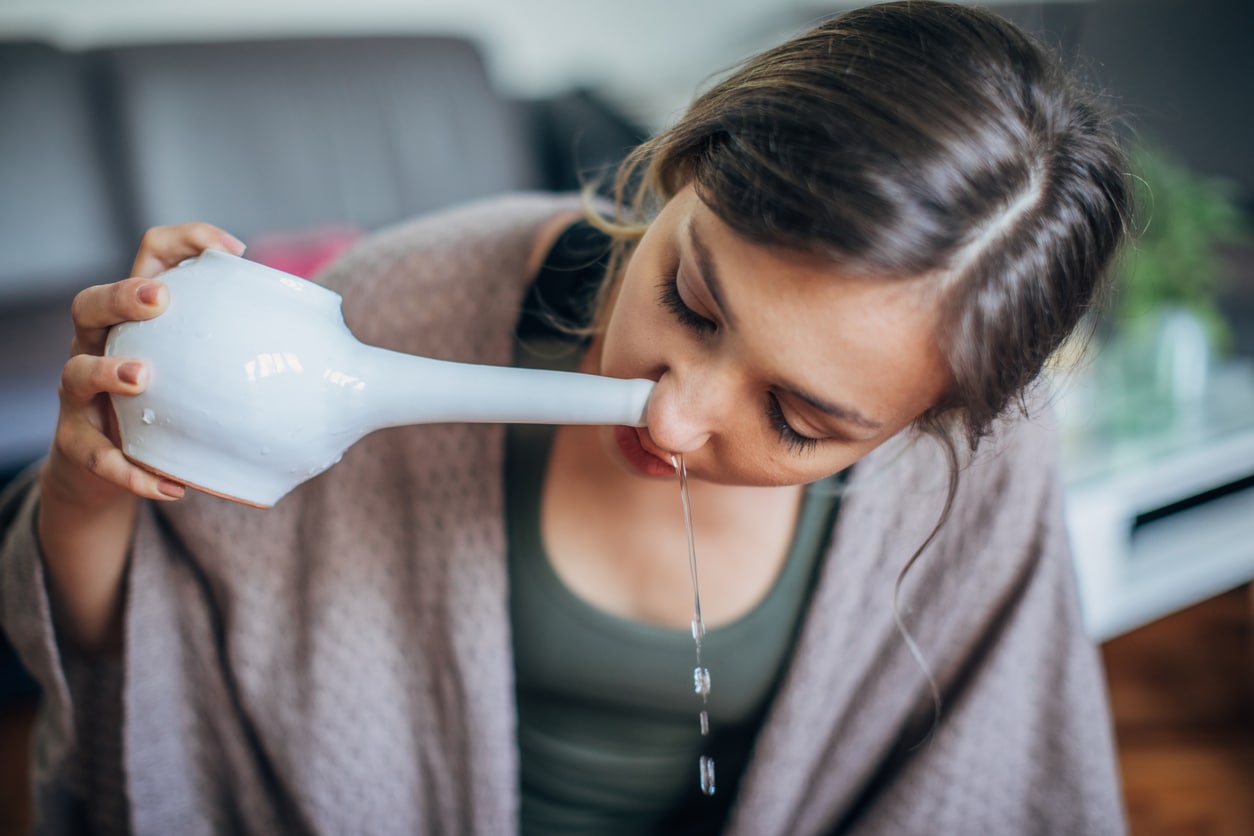Approximately 12% of the United States population is congested at any given time. While congestion is rarely a cause for concern, it can lead to disrupted sleep, sneezing, coughing, headache and difficulty breathing. When left untreated, it can increase your risk of sinus infections, middle ear infections and nasal polyps. One effective way to help relieve congestion is through nasal irrigation.
What Do I Need for Nasal Irrigation?

Nasal irrigation is a safe way to rinse your sinuses and relieve congestion, allergies, sinus infections, colds and other respiratory infections. Your sinuses are air-filled cavities that help you breathe easily. When they’re inflamed, mucus can clog them and lead to the discomfort associated with congestion.
Nasal irrigation flushes the clogged mucus with a saline solution and warm distilled, sterile or filtered water. You can buy saline solutions from most drug stores. To perform nasal irrigation, you’ll also need a device to pour the solution through your sinuses. Common devices include:
- Squeeze bottles
- Neti pots (shaped like a small teapot)
- Pre-filled sinus rinse containers
How Does Nasal Irrigation Work?
Before you irrigate your sinuses, wash your hands and the saline solution container to prevent infections. After you mix the saline solution according to the package instructions, follow these steps:
- Position the container’s spout in your nostril. Tilt your head so the first nostril is higher than the second.
- Tilt the container to allow the water to flow through. Do not squeeze or force the water through your nostrils; let it flow naturally.
- Let the water run through your sinuses and out the other nostril. Some water may drip into your throat, so try not to swallow it.
- Continue until all the solution is used up.
- Blow your nose to clear out any remaining saline solution.
- Repeat the process on the other side.
Can Anyone Use Nasal Irrigation?
While nasal irrigation is a safe way to prevent sinus infections and minimize chronic congestion, there are a few reasons you shouldn’t try it, including if you have an ear infection, pressure in the ears, surgery on your sinuses or ears or objects in the nostrils. If you’re unsure if any of these exceptions apply to you, contact your ENT provider for clarification.
Don’t let chronic nasal congestion stop you from smelling your favorite flowers at South Fork Park. Contact ENT & Allergy Specialists – Ear Nose and Throat Physicians and Surgeons today to discuss more treatment options with one of our specialists.